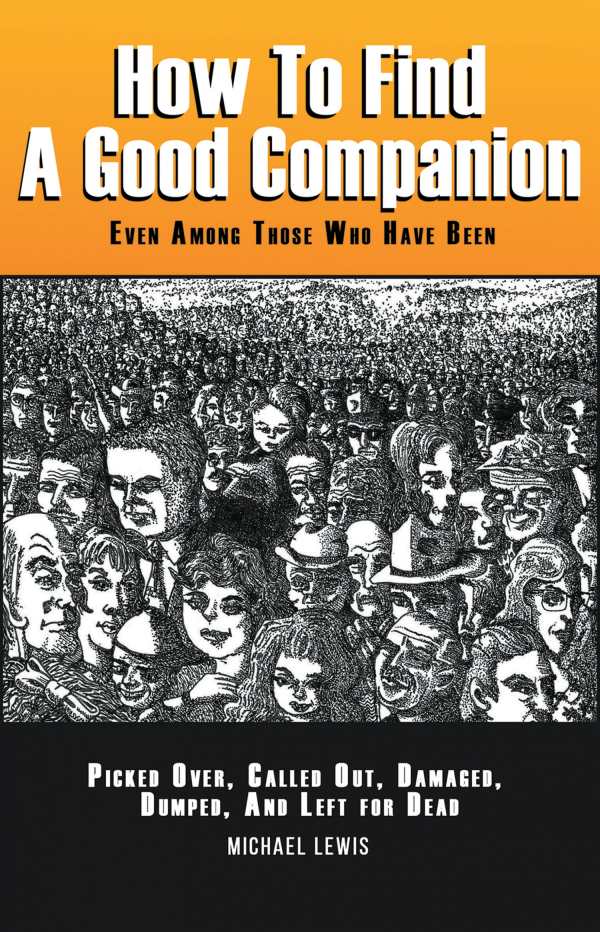It looks like you've stumbled upon a page meant to be read by our code instead of viewed directly. You're probably looking for this page.
How to Find a Good Companion
Even Among Those Who Have Been Picked Over, Culled Out, Damaged, Dumped, And Left For Dead
How to Find a Good Companion features rich, time-tested advice for finding a partner.
Michael Lewis’s humorous, concise dating guide How to Find a Good Companion focuses on self-esteem and personal perceptions as factors that are critical to finding a perfect (enough) partner.
Lewis suggests that the key to successful dating is to approach it like a business, using “high performance principles.” His book describes courtship as a series of practical experiments, with marriage and divorce as competing “market” forces. Here, coupling up is easier in a “buyer’s market,” especially if you’ve made yourself as desirable as possible to your dating pool—in this case, ten million potential mates worldwide.
The book takes a traditional view of partnership and is written for people interested in heterosexual dating. Its dating pool includes divorced people, but not those with “alternate life styles” or people who are single by choice. It centers monogamous coupling as the most desirable outcome. Each chapter includes an example of a single person who feels stymied in their search for love: some have unreasonable expectations, others have no self-awareness, and others are simply inexperienced.
The book describes three men and three women, all of whom face different obstacles in their romantic lives. Useful advice is woven in with gender-specific needs, such as a man’s desire to date a supermodel who likes ice hockey, and a woman who seeks a tall man who listens; both people’s wishes are described as unrealistic. The book sticks to in-person romance rather than opining about the wild and wooly world of internet dating and includes a few insights about sex and dating, as well as the actual selection process.
Lewis also challenges stereotypes and recommends self-examination as the best tool for people who wonder why they can’t find a partner. Instead of looking outside, he encourages daters to look within: “Forget the astrologer, the palmist, and the numerologist, and ask your mirror and your memories instead.” Assessing grooming, goals, self-presentation, and social skills are more effective than introspection, the text claims.
Mainstream, job interview-type techniques are shared. They overlook community markers, changes in culture regarding sex, and fashion trends. Outliers and weirdos should shape up or be lonely, the book claims: people wonder “if women who wear pink body stockings and bright lipstick are ‘on the make’? If men who wear earrings and carry purses are effeminate?” Rather than encourage birds of a feather to flock together, the book suggests that making an effort to fit in will broaden a person’s horizons.
Though the volume is slender, its nine chapters are rich with advice culled from various self-help monoliths. Full-page, pointillist caricatures of its characters are included throughout. The writing is smooth, strong, and confident, repackaging time-tested methods and theories about heterosexual dating alongside compelling vignettes and jokes.
How to Find a Good Companion features time-tested advice for finding a partner.
Reviewed by
Claire Foster
Disclosure: This article is not an endorsement, but a review. The publisher of this book provided free copies of the book and paid a small fee to have their book reviewed by a professional reviewer. Foreword Reviews and Clarion Reviews make no guarantee that the publisher will receive a positive review. Foreword Magazine, Inc. is disclosing this in accordance with the Federal Trade Commission’s 16 CFR, Part 255.
